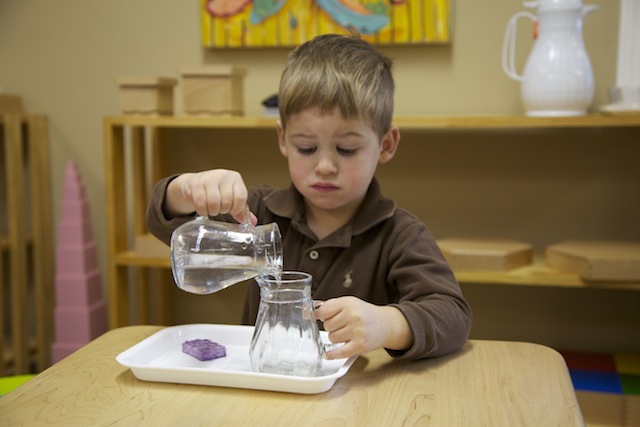Providing a Preview
Other Good Things

After a recent conversation with Brad Uhing, a Ph.D. Research Scientist at Avera Research Institute, we were totally besotted with his conception of “using a preview”. The way he articulated the concept, just made complete sense. Brad was kind enough to share his thoughts with us:
“For those of us with children we know a very important secret: All children are different. What exactly makes each child different? There are a lot of variables that contribute to the differences in children including home environment, parenting techniques, peer influences, and health habits. One variable that is often ignored is the child’s temperament.
Temperament refers to the traits or characteristics of each person’s personality that are considered to be innate (i.e., you are born with each trait) instead of learned. Examples of temperament are children who are introverted (e.g., more reserved, less outgoing) versus children who are extroverted (e.g., assertive, outgoing). Temperamental traits vary from child to child and most children have more than one trait.
Research by Thomas and Chess identified 9 primary traits related to temperament in children. These characteristics include:
Activity – child’s level of energy;
Regularity – predictability of the child’s routine such as sleep, hunger, and bathroom;
Initial Reaction – how a child responds to new people and/or new environments;
Adaptability – how long it takes a child to adjust to change;
Intensity – how a child reacts to different situations – do they react intensely or in a calm manner;
Mood – is the child generally happy or unhappy;
Distractibility – is the child easily sidetracked;
Attention Span – how long a child can focus on a task or activity;
Sensitivity – how easily is a child disturbed by the changes around them.
Each child can be on either end of the spectrum for each of these 9 characteristics, or somewhere in the middle.
For children with a negative Initial Reaction (3), slow Adaptability (4), and/or high Sensitivity (9), changes to the environment have a major affect on their moods and behaviors. The more unexpected the change to the child’s environment, the more severe or negative the reaction can be from the child.
How can we combat a severe reaction from our child? One of the best techniques is something I call using a preview, which is letting your child know ahead of time of their expectations or activities for the day. By using a preview, we are outlining the next activity for the child, the change to the environment, or the upcoming day’s activities. When your child knows the next event or activity for the day, they are more likely to be accepting of the activity.
Let’s consider a couple of examples. You may let your child know that we are going to wake up in the morning, eat breakfast, run an errand at the mall, go swimming, eat lunch, etc. (you get the idea). For younger children, you may have to repeat the activities more often than for older children, and you may have to explain in detail specific parts of the preview. The result is that children who have problems with changes to their environment are more likely to respond in a positive manner because they know the expectations for the day or the next activity.
Another significant example is using a preview when an unexpected change occurs. For instance, you may tell your child on Friday their favorite babysitter will be watching them on Saturday night. Unexpectedly, you later find out the babysitter has to cancel and your child will have a new babysitter instead. It’s important to let your child know before the babysitter arrives and to talk about the change so their reaction and mood is positive during the transition time.
Remember, not all children are born with the same characteristics and traits. Some children are born with a normal tendency to react negatively to changes in the environment or their normal daily routine. By providing a preview, you are combating those reactions by letting children know ahead of time of what lies ahead in their day. A negative reaction isn’t a bad thing. It’s just how some of our children are born.”
Written by:
Baan Dek
